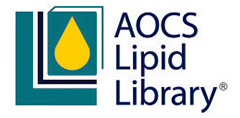Chemistry/Physics
The sciences of biochemistry, biophysics and nutrition in relation to lipids have assumed great importance in recent years. It has become evident that complex inter-related metabolic pathways are involved in the biosynthesis and degradation of lipids in the cells of all living things from primitive organisms to higher mammals. In humans, especially, knowledge of of how these processes are regulated is important in understanding many disease states. In relation to plants, information on plant lipid metabolism may be the key to producing new and improved crops for food and industrial purposes. We also need to know how the physical properties of lipids impinge on their biochemistry. Last but not least the nutritional properties of fatty acids and lipids are of critical importance for the health and well-being all consumers.
Animal Lipid Biochemistry
- Fatty acid oxidation
- Glycerophosphate and acylglycerophosphate acyltransferases
- Mammalian diacylglycerol acyltranferases
- Regulation of lipins and their role in lipid metabolism
- Phospholipid biosynthesis
- Phospholipases
- Acylglycerol lipases
- Metabolism and function of very-long-chain polyunsaturated fatty acids (>C24) in mammals
Plant Lipid Biochemistry
- Plant fatty acid synthesis
- Production of unusual fatty acids in plants
- Arabidopsis acyl-Coenzyme A binding proteins
- Long chain acyl-coA synthetases and other acyl activating enzymes
- Plant triacylglycerol synthesis
- Triacylglycerol biosynthesis in eukaryotic microalgae
- Subcellular oil droplets and oleosins in plants
- Triacylglycerol mobilisation in plants
- Role of transcription factors in storage lipid accumulation in plants
- Biosynthesis of plant lipid polyesters
- Rubber biosynthesis
- Carotenoid biosynthesis and regulation in plants
- The oxylipin biosynthetic pathways in plants
- N-Acylphosphatidylethanolamines (NAPEs) & N-acylamides: metabolism and functions
- Phosphoinositide signaling in plants
- Plant lipidomics
- 50 years of galactolipid research: the beginnings
- Transport and Function of Lipids in the Plant Phloem
Microbial Lipid Biochemistry
- PUFA Synthases
- Bacteria as sources of (commercial) lipids
- Biosynthesis of fatty acids
- Microbial phospholipases
- Yeast sphingolipid metabolism
- Polyhydroxyalkanoates
- Production of Omega-3 and Omega-6 Polyunsaturated Fatty Acids by Metabolic Engineering of Yarrowia lipolytica
- Pequi oil
Frying Oils
- Oil refining
- Action of natural antioxidants during frying
- Formation of new compounds during frying–general observations
- Formation of cyclic fatty acids during frying
- Formation of epoxy–, keto– and hydroxy–fatty acids
- Formation of volatiles and short-chain bound compounds during the frying process
- Formation of dimers and oligomers
- Oxysterol formation in frying oils
- Analysis of used frying oils and fats by high-performance size–exclusion chromatography
- Structural analysis of the cyclic fatty acids formed during frying
- Cyclic fatty acids: isolation and quantitative analysis in food and biological tissues
- Analysis of trans polyunsaturated fatty acids
- Determination of polar compounds by adsorption chromatography
- Determination of oxidized monomeric, dimeric and oligomeric triacylglycerols; diacylglycerols and free fatty acids
- Separation and quantification of oxidized monomeric, dimeric and oligomeric fatty acids
- Analysis of oxidized fatty acids
- Analysis of oxidized sterols in frying oils
- Metabolism and physiological effects of cyclic fatty acids formed from linoleic and α-linolenic acids during frying
- Metabolism and physiological effects of trans monounsaturated fatty acids from partially hydrogenated vegetable oils
- Metabolism of trans polyunsaturated fatty acids formed during frying
- Biological effects of frying oils mediated by the activation of peroxisome proliferator-activated receptors (PPAR)
Lipid Chemistry
Reactions of the fatty acyl moieties of lipids both at double bonds and at carboxyl groups are important both in biology and for industry. For example, autoxidation can lead to spoilage of foods, and oxidation reactions can cause problems within living tissues. In contrast, a huge industry has developed that makes use of chemical reactions of fatty acyl residues of lipids to develop products for industry - from cosmetics to detergents, etc. Web pages on the following topics will appear as time and work commitments permit.
- Functionalization of unsaturated fatty compounds across the C,C double bond
- Guerbet compounds
- Methods of Preparation of Fatty Acids and Their Derivatives: Laboratory Exercises
